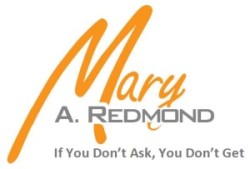There is power in saying NO. Guru’s preach that if we say that simple one-syllable word-NO-we will:
- Establish office and project boundaries quicker.
- Manage time more effectively. Be a more successful, productive sales or territory manager.
- Control or eliminate excesses like eating unhealthy foods, drinking excessively or smoking.
- Be happier, more contented and fulfilled.
- Avoid over-volunteering for activities. You’ll recognize this pattern if your community nickname is “The Always Go-to Soccer Coach” or “Fund Raising Chair Extraordinaire.”
Brick and mortar bookstores contain huge Self-Help sections. Amazon lists 1.5 million book titles containing the word NO. If there are so many resources available to instruct us on how to say NO, why are we unable or unwilling to say that 2-letter word?
I believe it has a lot to do with difficulty in uttering another phrase, “I don’t know”, which is usually followed by the phrase, “I want to talk it over with….”
Somehow or at some time in our cultural development, it became imperative to respond immediately to a request with either a Yes or a No. Delay in decision-making was unacceptable. We feared that decision delay was a sign of weakness. Maybe it was an indication that we didn’t control our own destiny, personal lives, service territory, company future or world peace.
Uttering the phrase “I don’t know, I’ll get back to you on that” was as challenging as watching a cat passing a hair ball.
As children, if we were smart, we relied upon the excuse “I’ll have to ask my mom or dad for permission.” We maintained peace at home and avoided punishment when we asked an authority for approval of a scheme or plan.
As adults, who is our go-to for counsel? We’re fortunate if we have someone to consult prior to decision-making. The title we use is not as important as that there is someone we go to for guidance.
We may refer to them as an adviser, coach, mentor, business partner, counselor, colleague, spouse and occasionally attorney. Their title depended upon the issue. The point is that we have someone to discuss a decision with before saying yes or no. For some of us, we refer to our guide as a higher-power.
There is another possible challenge on the way to “I Don’t Know.” It’s the ego, our sense of self-esteem, self-importance and personal identity. A strong ego is an asset but can be a liability if it overrides humility.
When the ego is strong enough to admit that Smart People Say I Don’t Know, you are on your way to more personal fulfillment and success.
Mary Redmond is a top-rated female professional speaker, author, consultant and business coach. She is a negotiation and body language expert that instills confidence, inspiration and expert knowledge that sets up her audiences for success!


